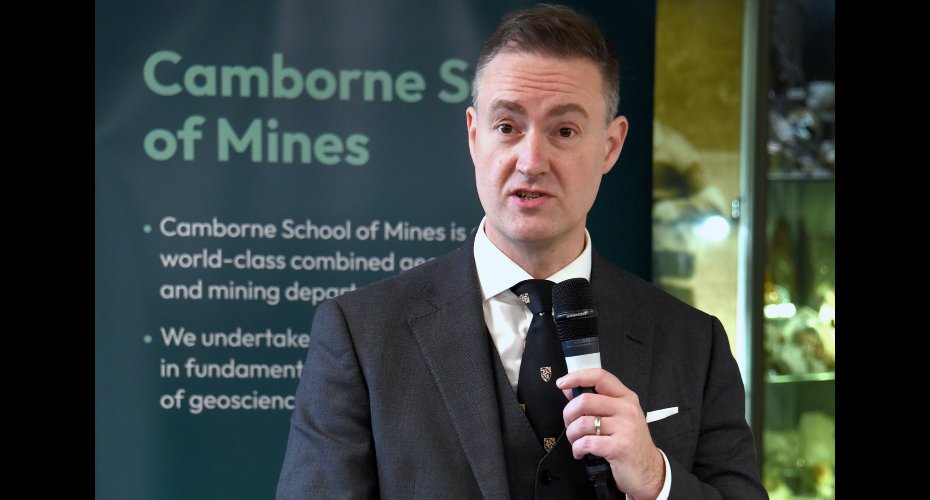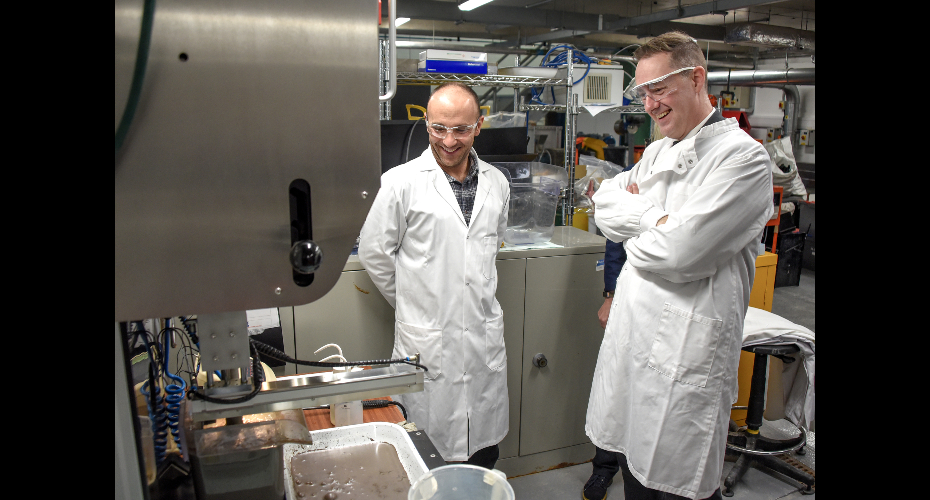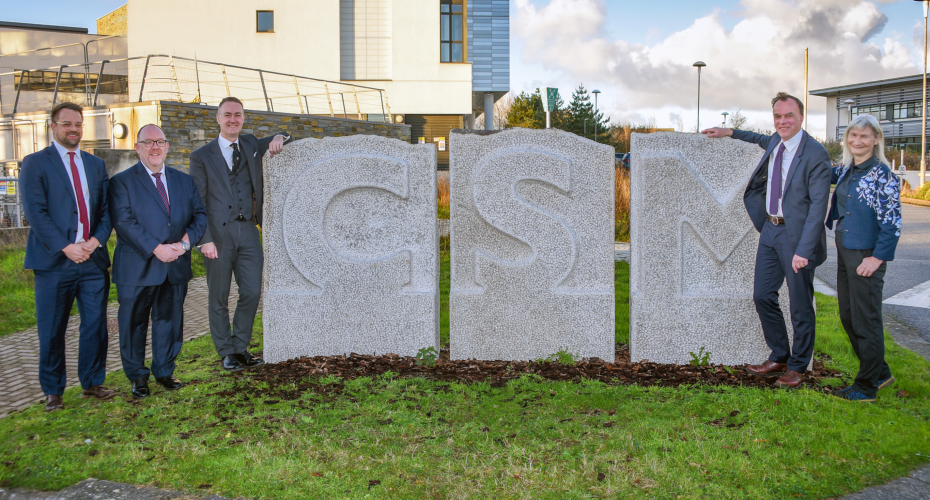Minister launches Critical Minerals Strategy at University of Exeter, Cornwall

The government has launched its refreshed UK Critical Minerals Strategy during a ministerial visit to the University of Exeter, Cornwall and its world-renowned Camborne School of Mines (CSM).
Chris McDonald MP, Minister for Industry in the Department for Energy Security and Net Zero, and the Department for Business and Trade, unveiled the strategy during a breakfast speech on the Penryn campus.
The Minister then took a tour of CSM’s laboratories to see some of the cutting-edge work taking place in Cornwall, before engaging in a roundtable discussion with businesses in the sector and University experts.
The announcement follows the unveiling of the Critical Minerals Strategy by Prime Minister Sir Keir Starmer at the G20 meeting in South Africa. It comes with a £50m fund to boost domestic production and processing, via R&D and initiatives to help industry commercialise and scale-up.
Leading members of CSM, including Frances Wall, Professor of Applied Mineralogy, have contributed to the strategy.
“We need critical minerals for everything – from the phones we use to the cars we drive – and for too long we’ve been dependent on a select few sources for our supplies of them, putting our national security at risk,” said Chris McDonald. “Now, we’re taking the bold action needed to shore up our supply chains, ramp up domestic production and back businesses with the investment they need to create new jobs and drive growth, as part of our Plan for Change.”
Critical minerals and rare earths are essential for the production of a wide array of technologies, including smartphones, electric vehicles, electronics and turbines. Currently, the UK imports 94% of these from overseas, but the new government strategy is aiming to reduce that reliance by increasing domestic production and the amount obtained through recycling to a minimum of 40%. It has set a target of producing 50,000 tonnes of lithium by 2035.
During the tour, the Minister was shown some of the state-of-the-art equipment in the Critical Minerals Equipment Hub (CMEH), which opened in February, this year, with more than £3.5m in government funding.

This award enabled mineralogy experts at CSM and key Duchy-based companies, Bluecap Resources, Paterson & Cooke, and Petrolab, to jointly procure and host hardware and software across their premises, and make that equipment commercially available. This includes microscopes, analytical X-ray spectrometers, and automated ore sorting and sophisticated sample preparation apparatus.
The delegation also met members of the UKRI-funded Critical Minerals Challenge Centre, which brings together researchers with industry partners to work on four specific projects related to innovation in the sector. Last week, it published a briefing calling for the strategy to recognise critical minerals as an opportunity to reindustrialise the UK, address Net Zero aims, and deliver tangible socioeconomic benefits.
The tour was led by Professor Wall, who said: “This visit was an excellent opportunity to introduce our students and researchers to the Minister and his Team. Our Critical Minerals Challenge Centre researchers have expertise in ecology, social sciences, circular economy and finance, as well as mining, minerals and geology. Bringing this knowledge together is essential for the sustainable production and use of critical minerals in Cornwall and around the world.”
Cornwall is home to strategically critical minerals, including tin, lithium and tungsten, and has been hailed as central to the government’s ‘securonomics’ agenda.
Professor Martin Siegert, Vice-President and Deputy Vice-Chancellor (Cornwall) at the University, said: “At this key juncture for the UK’s critical minerals sector, it is great that we can showcase what Cornwall has to offer, and the work already underway to create an innovative, sustainable future both here and across the country. We had some very productive discussions with the Minister and look forward to working with all of our stakeholders to promote skills, innovation and economic growth.”
Professor Patrick Foster, Head of CSM, added: “We are delighted that the Minister has chosen the Camborne School of Mines in Cornwall to officially launch the strategy in the UK. From its historic roots in training generations of world-class mining engineers and geoscientists to its current innovative role in critical-metals research, Camborne School of Mines remains central to the UK’s ability to responsibly harness and develop these vital resources.”




